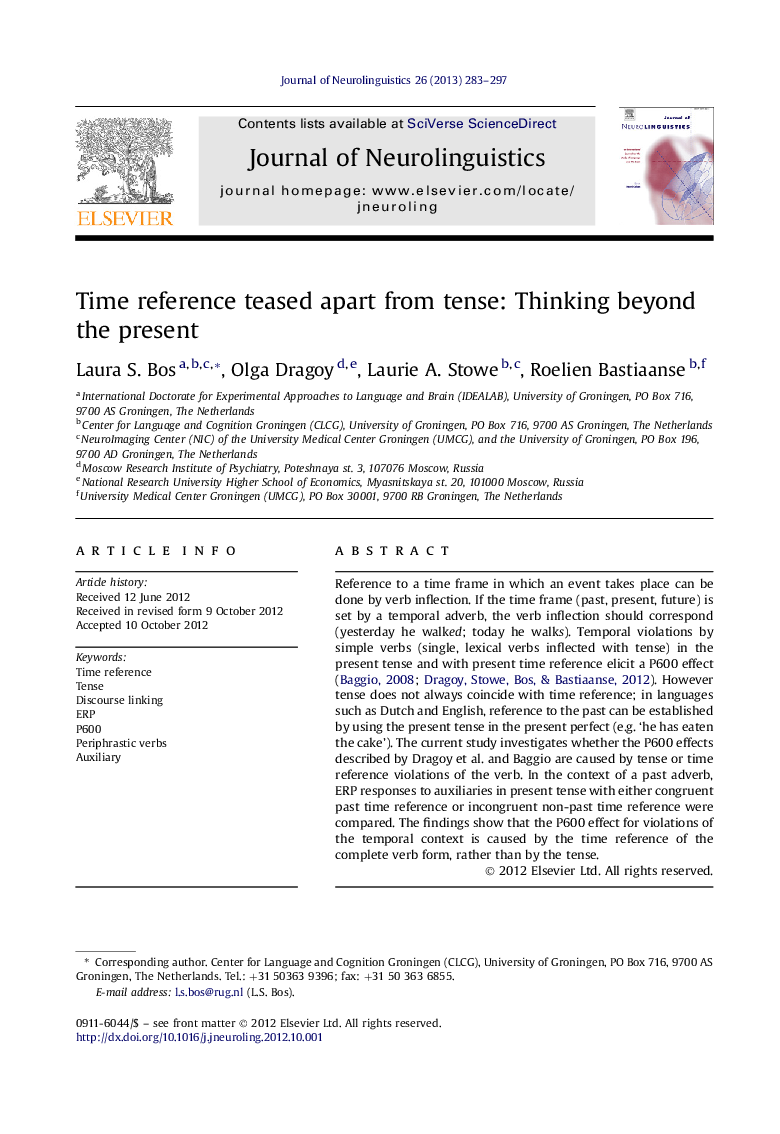| کد مقاله | کد نشریه | سال انتشار | مقاله انگلیسی | نسخه تمام متن |
|---|---|---|---|---|
| 911855 | 918094 | 2013 | 15 صفحه PDF | دانلود رایگان |

Reference to a time frame in which an event takes place can be done by verb inflection. If the time frame (past, present, future) is set by a temporal adverb, the verb inflection should correspond (yesterday he walked; today he walks). Temporal violations by simple verbs (single, lexical verbs inflected with tense) in the present tense and with present time reference elicit a P600 effect ( Baggio, 2008; Dragoy, Stowe, Bos, & Bastiaanse, 2012). However tense does not always coincide with time reference; in languages such as Dutch and English, reference to the past can be established by using the present tense in the present perfect (e.g. ‘he has eaten the cake’). The current study investigates whether the P600 effects described by Dragoy et al. and Baggio are caused by tense or time reference violations of the verb. In the context of a past adverb, ERP responses to auxiliaries in present tense with either congruent past time reference or incongruent non-past time reference were compared. The findings show that the P600 effect for violations of the temporal context is caused by the time reference of the complete verb form, rather than by the tense.
► Differential neural responses for past vs. non-past due to time reference or tense?
► P600 for past time reference violations by lexical verbs in present vs. past tense.
► P600 for past time reference violations by present tense auxiliaries referring to non-past vs. past.
► Time reference, not tense, is central during processing of temporal violations.
► Past and non-past time reference are processed differently, regardless of tense.
Journal: Journal of Neurolinguistics - Volume 26, Issue 2, March 2013, Pages 283–297